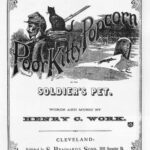When you mention Take Care in discussions, especially with those accustomed to different eras of hip-hop or those skeptical of pop music influences, try describing it as beautiful. It might sound unusual, even amusing, to associate such a term with a hip-hop album. Historically, hip-hop has been rooted in raw energy, grit, and tales of struggle, often characterized by soul, funk, and a certain ruggedness. Take Care, however, seemingly disregards these conventions. The album’s opening track immediately sets a different tone, built around a delicate piano melody and Noah “40” Shebib’s signature atmospheric production, creating a backdrop for Drake’s seamless transitions between rapping and singing. This track, featuring a chorus from a vocalist connected to Our Lady Peace, signals a clear departure from the expectations set by Thank Me Later. If Thank Me Later felt like a safe step after the breakthrough success of So Far Gone, Take Care is Drake confidently charting a new course.
To truly appreciate Take Care, it’s worth revisiting Thank Me Later. Initial reactions to Thank Me Later were mixed; it was acknowledged for its catchy hooks and clever lyrics but also criticized for Drake’s perceived softness. Yet, the album’s infectious beats and hooks proved to be enduring. Over time, repeated listens revealed a deeper connection to Drake’s honest, albeit sometimes awkward, expressions of vulnerability. Collaborations with heavyweights like on “Light Up” and “Miss Me” further solidified its impact. Reflecting on Thank Me Later after its release, it’s clear that the album evolved into a standout hip-hop release, showcasing Drake’s ability, much like his early mentor Phonte from Little Brother, to effortlessly blend rapping and R&B, unafraid to share personal thoughts, even if it risked criticism.
As anticipation grew for Take Care, fueled by tracks like the introspective “Marvin’s Room” and “Trust Issues,” questions arose about just how impactful Take Care could be. Despite his widespread success in 2010, Drake seemed to grapple with personal turmoil, lamenting familiar relationship issues and the challenges of fame. Could Drake authentically convey such vulnerability across an entire album, or was it a carefully constructed persona? Take Care answers emphatically, as Drake, 40, and a team of collaborators strive to create a pop-rap masterpiece in the vein of Kanye West’s ambitious My Beautiful Dark Twisted Fantasy. While it might not fully reach that monumental peak, their effort is remarkably compelling.
Following the opening track, the subsequent songs lay the groundwork for the album’s core themes. Drake articulates his loyalty to his inner circle, his use of extravagance as a coping mechanism, and revisits personal struggles first shared in Thank Me Later. A recurring motif is Drake’s sense of responsibility for his life and those around him, a theme that resonates powerfully later in the album. After the experimental “Crew Love,” a collaboration with The Weeknd that demands multiple listens to fully appreciate, Drake partners with Rihanna on the album’s title track, “Take Care.” This song, a reimagining of Jamie xx’s Gil-Scott Heron remix “I’ll Take Care of U,” serves as a sequel to Drake’s past acknowledgments of relationship shortcomings with Rihanna on Thank Me Later. Here, Rihanna offers a surprisingly tender vocal, seemingly forgiving Drake and pledging enduring friendship. Drake reciprocates this sentiment, creating a poignant exchange. The album then transitions into “Marvin’s Room,” Drake’s now-iconic emotionally charged late-night confession, where he critiques an ex-girlfriend’s new relationship and pleads for a second chance. Adding to the album’s richness is a hidden gem: a Kendrick Lamar interlude, a brief but impactful verse recounting Kendrick’s initial encounter with Drake and his realization of Drake’s burgeoning fame. This unexpected collaboration adds an intriguing layer to the album’s narrative.
The heart of Take Care lies in the sequence of songs that ignite the most discussion. T-Minus delivers a trio of tracks characterized by deep bass and 40’s signature production style, with Drake exploring themes of loyalty and introspection. Then, Just Blaze contributes what many hailed as the beat of the year—a powerful, soul-infused track featuring Rick Ross. On this track, Drake confronts criticisms of his “softness,” asserting his artistic identity. However, this assertive phase gives way to “Good Ones Go,” a gentle ballad reflecting on missed opportunities in the pursuit of fame. Drake delves into relationships that faltered, inviting Andre 3000, Stevie Wonder’s harmonica, and Lil Wayne to amplify the complexities of his emotional landscape. These tracks lean heavily into Drake’s R&B sensibilities, bordering on what some might find sleep-inducing, yet they are undeniably moving. “Doing It Wrong,” featuring Stevie Wonder, stands out as a pinnacle of pop perfection, especially as Stevie’s harmonica weaves through Drake’s reflections on the bittersweet nature of youthful love and friendship. This segment highlights Drake at his most emotionally resonant.
As Take Care approaches its final act with the last three songs, the album’s depth and scope become even more apparent, even as it surpasses the hour mark. “Look What You’ve Done” feels like a raw, unfiltered outpouring. Drake revisits his journey to fame, focusing on his relationship with his southern uncle and his bond with his mother. He addresses his maternal relationship with striking honesty, beginning the song in his mother’s basement with his former girlfriend Nebby, capturing a real conversation with his mother about her struggle to quit smoking and his complex emotions around it—anger evolving into relief and gratitude for his ability to provide for her. The uncle segment recounts formative summers in Houston and the life lessons learned during those visits. This deeply personal track concludes with a monologue from his grandmother, reminiscent of Kanye West’s “Runaway” in its intimacy. Following this intensely personal moment, the album shifts gears with the energetic “HYFR” featuring Lil Wayne and a syrupy R&B take on Juvenile’s “Back That Azz Up,” as if Drake needed a moment of levity before delivering “The Ride.” “The Ride,” another collaboration with The Weeknd and his production team, much like “Crew Love,” requires multiple listens to fully grasp its nuances. Yet, it contains some of Drake’s most candid verses, dismissing critics while detailing his struggle to maintain normalcy and let go of past relationships amidst his newfound success. He reflects on the life he once strived for and now questions. These verses are rich with detail and represent some of the most profoundly human moments in his career.
Take Care may not have the immediate, chart-topping singles of Thank Me Later, but beyond a somewhat awkward Nicki Minaj verse and a less essential Lil Wayne feature on “HYFR”, it stands as an exceptionally cohesive and sonically pleasing hip-hop and pop listening experience. Unlike Thank Me Later, the weaknesses are not attributable to Drake or his production team. The album establishes a remarkably consistent sonic palette, making the tracklist flow almost seamlessly. The final four tracks could arguably be rearranged without disrupting the album’s overall impact, perhaps a testament to its cohesive nature. This consistency ensures the listener remains fully engaged from track to track. This raises an intriguing question: While Drake’s ascent might have been slightly less meteoric without his association with Young Money artists like Lil Wayne and Nicki Minaj, Take Care suggests that his greatest strengths lie in his Toronto connections and broader industry relationships. One might ponder if Drake could achieve even greater heights by venturing out independently. However, at this juncture, Drake’s trajectory seems limited only by his own choices. Despite any perceived corniness, he is a gifted songwriter who embraces his unique qualities, which is ultimately what one seeks in a pop artist, especially one capable of crafting something as aurally captivating as Take Care.


